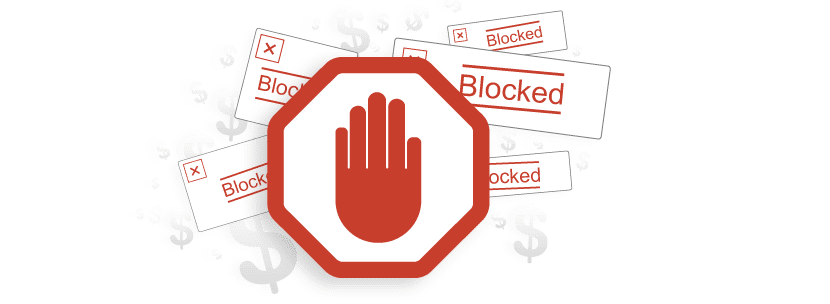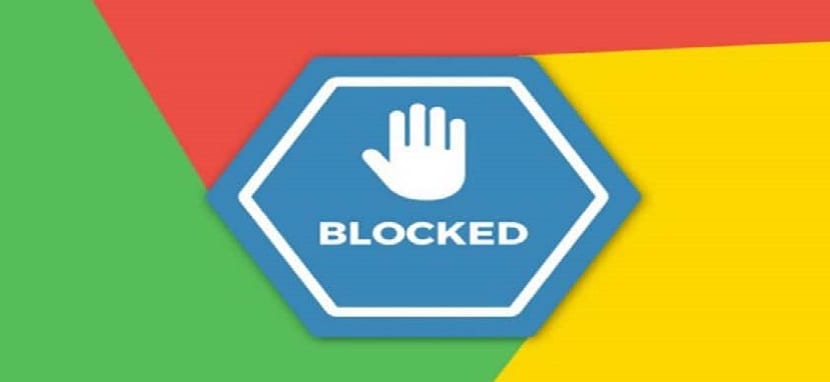
The development team in charge of the development of the Chromium web browser, (the open source version of Google Chrome), has decided to make some changes to the browser extensions platform y these could end uBlock Orgin's operation, the ad blocking extension.
Extensions have their capabilities defined in what the Mountain View firm calls the Manifesto. The latter is in version 2 and in the next revision Google intends to limit the blocking capabilities of the webRequest API.
En version 3 of the Manifesto, Google intends to limit the blocking version of the webRequest API, making a possible removal of blocking options for most events.
The non-blocking implementation of the API that allows extensions to observe requests, but not modify, redirect or block them and therefore does not prevent Chrome as well as browsers based on it from continuing to process the request since it will not be modified.
Google adds that the restrictions to be introduced in the webRequest API must be defined. In this regard, the draft suggests that the API parts anticipated for the result will be kept only for features that cannot be implemented with declarativeNetRequest.
Raymond Hill, author of the popular uBlock Origin and uMatrix ad blockers has raised concerns about some of the announced changes.
According to the latter, the change to the declarativeNetRequest API would mean the death of these extensions used by at least 10 million Internet users.
To the words of Raymond Hill:
If this declarativeNetRequest API (rather limited) ends up being the only way that content blockers can do their job, it basically means that two content blockers I've been keeping for years, uBlock Origin ("uBO") and uMatrix, no longer It can exist.
Google does not look favorably on ad blockers

An argument advanced by Google in favor of declarativeNetRequest as the main content blocking API for extensions is that it works better.
On the other hand, is that better privacy guarantees are provided because it allows extensions to tell Chrome what to do with a particular request instead of asking the browser to send the request to the extension; therefore, the extension does not have access to network details.
According to Hill, the incompatibility of its extensions with the API that Google intends to propose stems from the fact that it allows to rely only on a single filtering engine.
By contrast, uBlock Origin and uMatrix trust many to get the job done. In fact, one of the fundamental problems is that the number of filters is limited to 30.
In this sense, the developer specifies that uBlock and uMatrix are based (among others) on Easylist, the very popular Block list with its 42,000 filters that is also used by many ad blockers, including the popular AdBlock.
Hill doesn't even think this list is sufficient for the blocking needs of a modern browser.
It follows that even if there will still be ad blockers available for Chromium (and its derivatives), the latter will be less effective.
Extensions act on behalf of users, extend the capabilities of a * user agent *, and they leave out the blocking ability of the webRequest API, it is essentially in the sense that they are at a disadvantage in Chromium, to the benefit of websites who would obviously like to have the final say on the resources their can handle. pages. Says Raymond Hill
This is a draft only, which means that current discussions can lead to new possibilities.
However, the criticisms of Internet users have not been long and it must be said that some illustrate the path that many could take if the announced changes are finally confirmed.
And it is not unusual, given that Google currently has a business model for advertising and these blockers have a terrible impact on YouTube.
Well, let's see what they invented against blocking advertising from / etc / hosts xD
The solution is to use firefox and that's it.
Well, chrome has always been a Wednesday ... unfortunately many have followed the nefarious model of him as OPERA; Opera was a pioneer and I liked its engine more than Gecko.
Hopefully Seamonkey sticks with its traditional, parallel browser with good code.
Some can be removed by disabling javascript!
And where is the ball? There has to be something else, it cannot be that Google, a transnational of its size, is willing to generate such a great wave of disagreement over extensions that do not monopolize even 1% of its user universe. The money they lose for that 1% who do not like the intrusion and abusive tracking of advertising on their computers is very little compared to the negative debate they can ignite against them.
A more reasonable decision would be for them to implement their new policy (totally respectable since the browser is theirs and not ours, this in the end is a business) in the Chrome browser, totally proprietary, and they could leave Chromium (open source but not free) with the possibility of hosting these blocking services.
If such a myopic decision is made, it would be the best environment for Firefox to attack, fill those spaces and attract those users. It is fully proven that the problem is not advertising on the Internet, it is the abuse of its use and the user experience for any simple task deteriorates too much and that goes against the browser itself, itself. Unless ... unless ... there are silent plans trying to impose a global model of subscription browsing without advertising as opposed to a free one like the current one but full of advertising without the possibility of blocking it.
My gentlemen, I have always used chome, and will continue to do so, as long as I can block invasive advertising on the internet, thank you